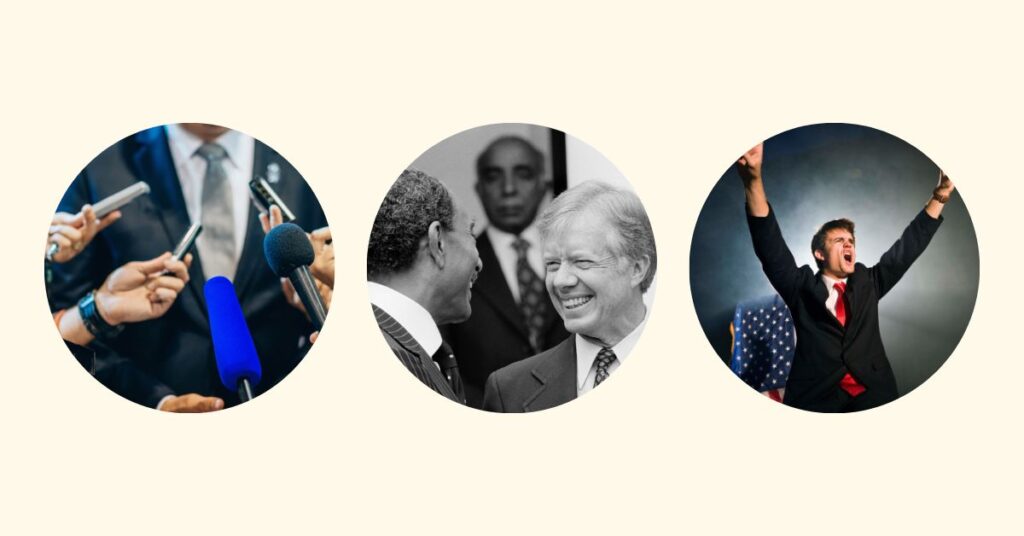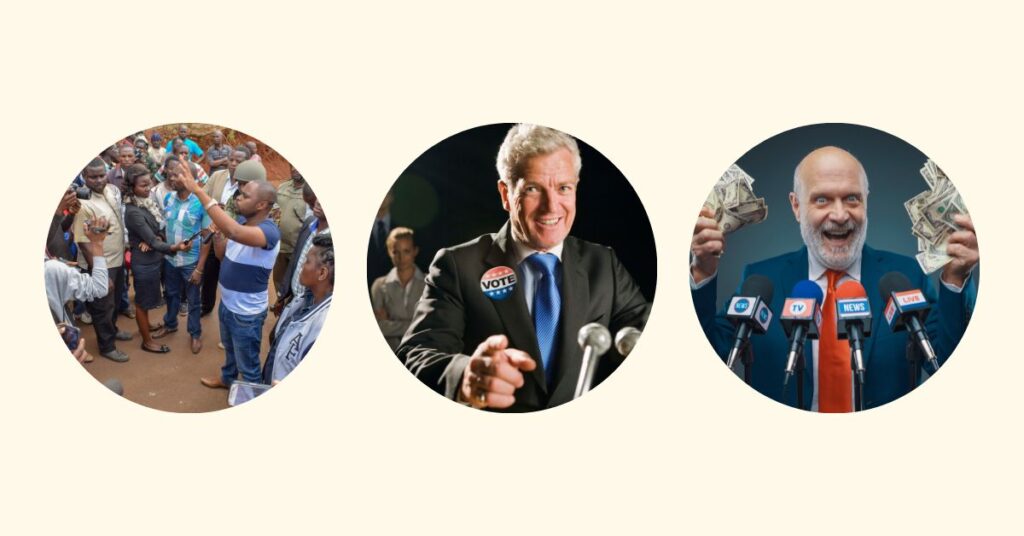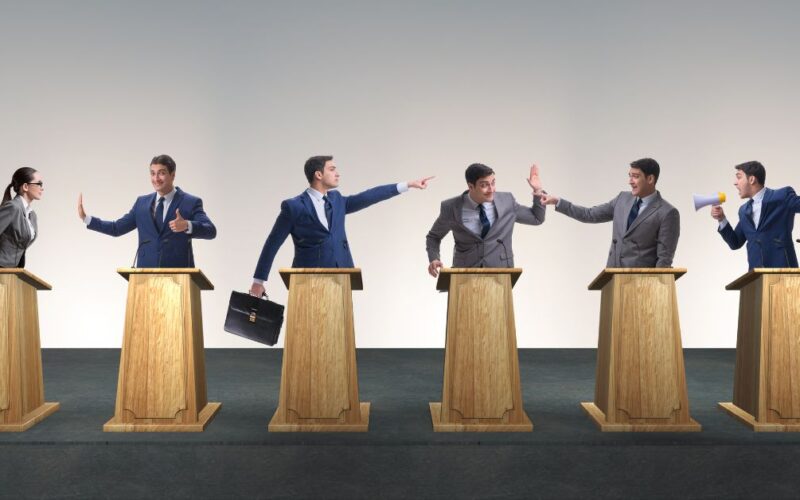❇️ PROLOGUE
We live in an age where private matters that become known are paraded for public consumption, regardless of their nature or relevance. Personal financial troubles, infidelity, and health concerns are some of the topics the media laps up. There has been significant debate on this, and I agree with the celebrities’ s right to their privacy.
However, we need to understand that politicians are entirely different from any other type of celebrity. We have every right to know information that is crucial to evaluate the character of politicians and determine if they deserve our trust to lead or govern us. Behavior, in or away from the public eye, is simply a handiwork of their character. We can only be unconcerned to the behavior of politicians — any of it — if and to the extent we become indifferent to their character. Public has the right to know when a politician does something in private that morally, ideologically, or legally negates what they profess in public.
They all know when they sign up for the career that they have to be able to display a high degree of integrity in their private lives and be prepared for public scrutiny. Yes, we should not unnecessarily invade their privacy, but we cannot afford to ignore what they manifest simply because it has to do with their “private lives.” In every society one or another character flaw can be held as undesirable or outrightly unacceptable in a political leader or a bearer of public trust. If politicians are going to feed from the public purse, then they had better be beyond reproach. Even if they serve one term in office, they get a full pension for life.

Almost always the public respects a politician’s right to their personal or private life, as long as they do not lie. People are allowed to have flaws in their private life as long as it has no impact on the performance of their job. Francois Mitterrand, the French president from the 1980s for two terms (14 years), fathered a daughter outside his marriage. However, during his second mandate when it became known that he had a daughter outside of his marriage, Mitterrand did not lie and publicly owned up to his daughter and mistress. The public in France was surprised but not shocked. It had no impact on his political accomplishments or interference with his ability to win elections or govern France. Similarly, in Canada people were generally unperturbed by news about the colorful life of Prime minister Pierre Trudeau, (1968- 1979, 1980-1984) because Trudeau never professed to be a moral role model.
Yes, the politicians should be held up to a higher standard. “We the People” are paying their wages to represent at whatever level, so they should stand a little taller and shine a little brighter than the rest of us. If they want to “work” for us and accept payment and other compensations, then they have to be prepared to accept that we want to know what they are into as this defines their character for us, and we feel we have a right to know not only what kind of person is running for election or the kind of person that we elected. If a person is elected by the public, that person is supposed to represent the public and therefore set some kind of example of behavior.
❇️ MY VIEW
Here are certain aspects of a politician’s private life where information contrary to what they profess in public is welcome knowledge for us to make better choices:
➡️ Criminal behavior
➡️ Behavior contrary to their moral stand in public
➡️ Behavior contravening the ideology they profess and sell
➡️ Addiction, drug, alcohol problems
➡️ Lack of transparency on fundraising
➡️ Tax and financial situation
However, some of the audios or videos being shared currently are simply scandalous and we should have no interest in them. There is no need to drag the most intimate parts of their life through the mud. I want to be told on a need-to-know basis, and I do not really need to know what happens behind closed doors with total consensus between two adults. Churchill was a drunkard with some questions about his sexual preferences. FDR had a mistress. Imagine if either of the last two lost their positions due to their transgressions. We all have our weaknesses. It is what keeps us human.
So simply, if it is personal, not illegal, not fraudulent, and not related to political corruption, then it is not my business. It also marvels me that our country has instituted agencies that have been shown to spy on politicians but discourage the exposure of their own ilk. That is nonsense.

After a long learning and correcting experience there is almost a consensus in evolved democracies that politicians’ personal lives cannot be beyond scrutiny. However, lest you get a mistaken impression, the scrutiny I refer to in this piece is about the prowling media and not the prying agencies. They or the government have no business, nay authority, taping or filming politicians’ personal lives. I condemn it.
However, when it comes to media, there are more pros than cons for media to be free to prowl. People like you and me have the right to ignore the sleaze and consume what can lead them to a better judgment.
❇️ FINAL ARGUMENT
All people that are considered public figures have, to one degree or another, the power to affect society; be it in an overt way via politics or economics or more subtly via changing peoples’ perceptions of the world. These people need to be held to account and the media is the most effective way of doing this as normal people do not have the time or resources to scrutinize everything pubic figures are doing whereas the media can. If the private lives of public figures are conflicting with their actual public persona it is in the wider interest to reveal this. This is especially true of politicians. For example, in 2009 during the UK’s “MPs expenses scandal” it was revealed that some MPs, whose responsibility it is to create and review laws, were breaking their own tax laws in their private lives. Such an instance clearly demonstrates a misuse of their position and deserves to be known.
Media simply covers the type of stories the public wants to consume. It is not by accident that the best-selling newspapers in the West are the sensational tabloids and most viewed content in Pakistan or India are the channels or journalists who are willing to be more lurid than accurate.
When you enter a career which requires courting the media to gain not only publicity but also people’s trust, it is well known that intrusion into your private life may occur. It could even be argued that by entering politics you agree to forfeit your right to privacy as a condition of entry. Thereafter, when success has been gained via manipulating the media it is hypocritical to complain of “media intrusion”.
No clear dividing line can be drawn between public and private behavior, especially for politicians; drawing up rules would be arbitrary and would prevent some corrupt, dubious, or dishonest behavior from being exposed. Media’s excesses or indiscretions in this respect are bad, but a necessary evil. The creation of solid distinctions would undermine the power of the media to carry out its watchdog role because in a scenario where such strict rules existed something in the public interest could be transpiring in the private lives of public figures and the media powerless to report it.
Politicians are not puppets on a string or actors on a stage — they are leaders who should be judged by how they offer themselves to be judged. Remember, America did not much care about John F. Kennedy’s famed affair with Marilyn Monroe, but it refused to tolerate Richard Nixon’s Watergate shenanigans. Bill Clinton’s affair with White House intern Monica Lewinsky became a bigger issue only after he deliberately and overtly tried to mislead people on the issue.
❇️ CONCLUSION
Politicians, by dint of their choice of career, are and should be subject to a higher level of scrutiny and judgment. It is the responsibility of the media to inform the public about it and the discretion of public what they heed as relevant and important. Being informed of politicians’ conduct in the light of their professed morals and values will allow voters to elect people they can trust to make decisions using reason and wisdom — not their pocketbooks, their beguiling storytelling, or their misguided egos.







